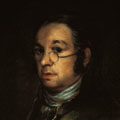








"The improvement to which you refer is denominated "The Crayon Daguerreotype." This invention made by Mr. J. A. Whipple, is the only improvement in Daguerreotyping, I believe, for which Letters Patent for the United States were ever issued. The pictures produced by this process--which is of the simplest description imaginable--have the appearance and effect of very fine "Crayon Drawings," from which the improvement takes its name. Some of our most distinguished artists have given it their unqualified admiration. Among them, our Mezzotinto Engravers, especially John Sartain, Esq., who, from his rich embellishments to most of the leading Magazines and Annuals of the country, as well as from the celebrity of the superb Magazine which bears his name, is so well known and so well qualified to judge of its merits. As an auxiliary to the artist, in furnishing heads to the Magazines, or other works, it is invaluable; the great object which it accomplishes being to give a finer effect and more distinct expression to all the features--the whole power of the instrument being directed to, and confined to the head."
"The late hour at which this subject has been brought to our notice prevents so full a description as we would otherwise have been glad to furnish. The New England States have been disposed of; negotiations for any of the others can be made through M. A. Root, 140 Chestnut street, Philadelphia."
"A series of beautiful portraits are about being prepared by the "Crayton Process" for the express purpose of being placed on the exhibition at the "Art Union," when amateurs, artists, and the public generally will have an opportunity of witnessing its effect. We are especially gratified with this striking improvement, from the advantages which it promises to the Daguerrean art."
"It is admirably designed to excite a new interest on the subject through the community, and in this way--and from its tendency to render the art more generally useful, and to elevate and distinguish it--to make it to all a matter of more general importance."
"Yours respectfully,
"M. A. ROOT."
In our second edition, we hope--with Mr. Root's permission--to lay the whole process before the public, although our artists must bear in mind that Mr. Root's patent secures to him the exclusive right of its application.